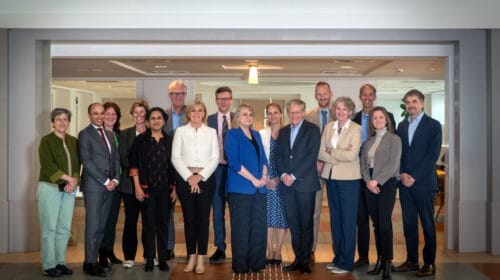Celebrity images rights and statutory protections in Nigeria

Image rights are starting to garner attention due to multiple cases of exploitation and infringement. Notably, the shield of image rights covers in most cases celebrities in Nigeria. It is interesting to note that it is mostly celebrities who have instituted and won image rights cases. This is not to suggest that persons who are not celebrities have no image rights; however, the ability of a claimant to demonstrate he enjoys goodwill or considerable influence, are factors in image rights action. Therefore, in most cases, it is the celebrities that can establish these factors when they seek to enforce their image rights.
Because these celebrities are famous, people can exploit the value reposed in their personalities by lending their faces or voices to a brand. The brands increase their sales and profile due to the endorsements by these celebrities while the celebrities earn royalties in return. Most of the time, celebrities can earn more revenue than they make from their regular careers. For example, in Nigeria, a local singer, Iyanya was reported in 2016 to have had a $350,000 endorsement deal with Zinox computers.
The vastness of this audience exposes such a celebrity to the risk of his or her rights being violated. Such an image, for instance, stands the risk of being shared across many platforms and is used for diverse reasons by the individuals it is shared with, without authorisation, as a result of the digital world we now live in. This could be regarded as inappropriate or a misuse of the image.
Therefore, it is imperative to recognise celebrity image rights as a subset of intellectual property rights (IPR) and to safeguard them from this kind of unlawful usage.
An image includes a physical likeness or representation of a person, animal, or thing, photographed, painted, sculptured, or otherwise made visible. It transcends the borders of mere photographs, to include an individual’s public manifestation of personality. It may include a person’s name, signature, image, slogan, logo, mannerism, likeness, nickname, voice, and any other item which may be used to identify a person in public. On the other hand, image rights refer to the control over an image by the personality whose image is portrayed or by the image’s creator.
In Nigeria, image rights are protected under Nigerian laws and defended against infringements. There are legal frameworks safeguarding the exploitation of celebrity image rights as well as other legislative enactments that indirectly touch the subject. The legal framework in Nigeria for safeguarding the image rights of celebrities is analyzed below: Constitution of the Federal Republic of Nigeria Privacy is the right an individual has, to keep certain parts of themselves away from others. Section 37 of the 1999 Constitution provides for the right of Nigerians to privacy. The section not only guarantees but also protects the right concerning Nigerian homes, condenses, telephone conversations, as well as telegraphic communications. An individual’s image can be characterised as private and peculiar to them if they wish to make it so. Hence, it is up to each individual to decide what kind of personal data they release to the public.
In the case of Douglas & Others v. Hello & Others Ltd, the England and Wales Court of Appeal held that a breach of privacy rights occurs when a third pary obtains private information without authority and publishes the same to the detriment of the owner of that information.
Due to today’s easy access to digital information, dishonest individuals have discovered it to be simple to take the images or likenesses of well-known individuals off the internet and use them for their gain. However, the Data Protection Act of 2023 offers a remedy for this problem by giving persons who provide their data (data subjects) particular rights that give them control over how their data is used. For instance, section 25 of the Act provides guidelines on when data processing can be said to be lawful, of which consent of the data subject is an indispensable requirement. The Act further provides under section 26 that the silence or inactivity of data subjects shall not constitute consent. Laudably, Section 35 of the Act also provides that a data subject can withdraw the consent for the processing of their data, at any time. Section 36 on the other hand gives the data subject the right to object to the processing of such data, an instruction to which the data controller must immediately adhere, except where public interest or legitimate reasons are concerned. Even with this clause, such public interest or reason must be capable of overriding the data subject’s fundamental right.
The legal term, “copyright”, is used to refer to the ownership rights authors, musicians, and artists have over their creative works. It grants the copyright owner several exclusive rights, prohibiting anyone else from replicating or exploiting the work without the owner’s permission. Section 2(1) of the Copyright Act brings literary, musical, artistic, cinematic, audiovisual, sound recording, and broadcast works under the definition of ‘copyright’, hence making them eligible for protection. As a result, the same copyright protection that applies to creative and cinematographic works can also be applied to the personality or image of a person as it appears in a photograph, painting, sculpture, or film. Section 108 of the Act also defines ‘copy’ as a reproduction in any form, including a digital copy, which extends to digital images. All these definitions ensure the protection of celebrities’ images.
To be continued tomorrow
Olomu is a law student at Lagos State University.




